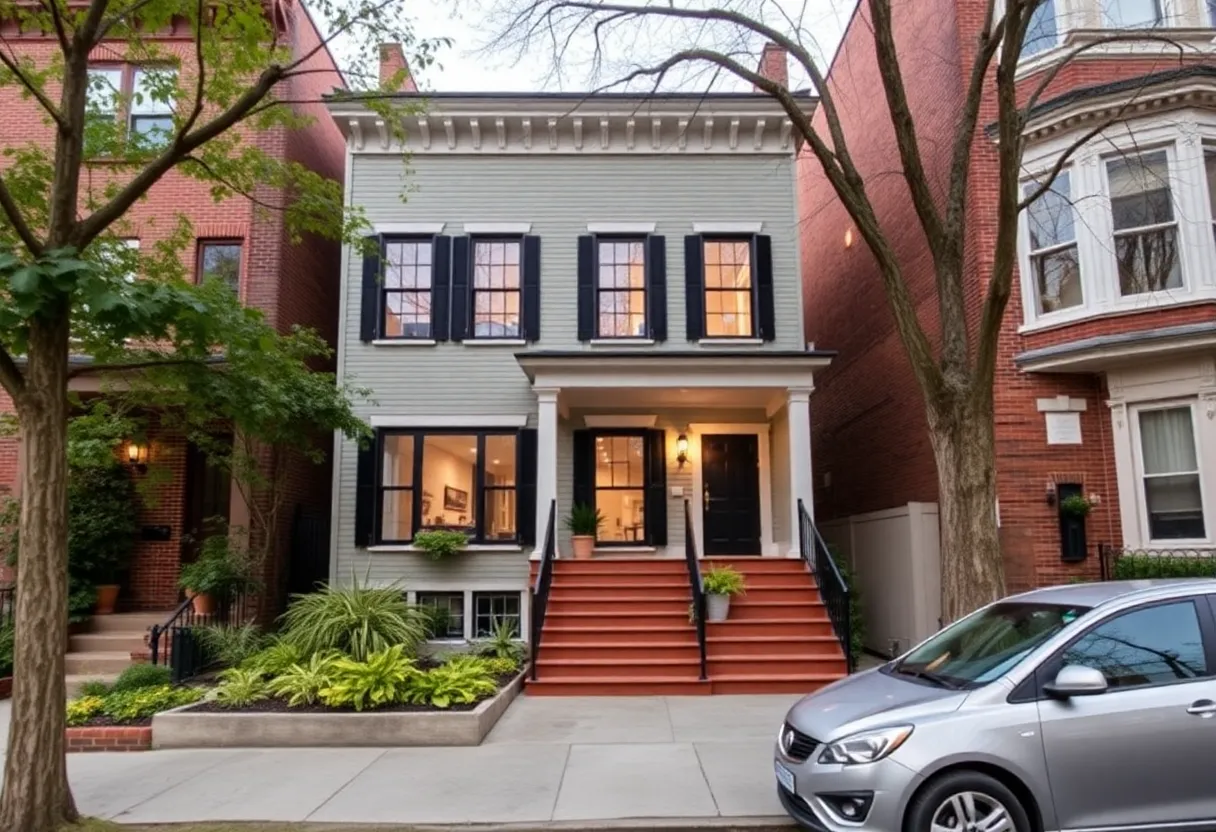How to Make the Most of Your Philadelphia Home Renovation: Local Tips and Resources
Assess Your Home’s Needs and Set Clear Objectives
Successful home renovation begins with a comprehensive evaluation of your property’s current state. Identify areas needing urgent repair or upgrade, whether it’s aging wiring, a deteriorating roof, or outdated interiors. Establish specific, measurable goals for the project. For example, aiming to enhance energy efficiency, increase living space, or modernize aesthetics provides direction. Clear objectives prevent scope creep, manage expectations, and guide selection of materials and contractors. Document your priorities to ensure each decision aligns with your vision and budget.
Understand Philadelphia’s Zoning and Permitting Requirements
Philadelphia enforces detailed building codes and zoning regulations to safeguard community standards and safety. Before any physical work begins, visit the Department of Licenses & Inspections (L&I) website or contact their office to determine what permits are required. Common projects like adding rooms, demolishing walls, altering exteriors, or electrical and plumbing upgrades often need formal approval. Neglecting permit requirements risks fines, work delays, or the mandate to undo unapproved renovations. Ensuring compliance from the outset saves time and avoids legal complications.
Choose a Contractor with Local Expertise
Selecting a contractor familiar with Philadelphia’s distinctive architecture and local regulations is essential. Look for professionals with proven experience in Philadelphia’s housing market—be it historic rowhouses, modern townhomes, or multi-family units. Review their portfolios, ask for references, and verify licensing and insurance coverage. A contractor knowledgeable about the city’s permitting process and construction standards will streamline approvals and deliver quality craftsmanship, reducing disruption and rework.
Plan for Potential Disruptions
Renovation inevitably affects daily routines. Prepare for noise, dust, and restricted access to parts of your home. Collaborate with your contractor to develop a realistic timeline, incorporating buffer periods for delays caused by weather, material procurement, or permit issues. Communicate expectations clearly and maintain flexibility. Establishing a good understanding of potential disruptions can mitigate frustration and help you plan alternate arrangements, such as temporary accommodations or adjusted daily schedules.
Explore Financial Assistance and Incentive Programs
Philadelphia offers several programs to support homeowners undertaking renovations, especially for repairs and improvements that enhance safety, accessibility, or energy efficiency:
- Basic Systems Repair Program (BSRP): Provides free repairs for electrical, plumbing, heating, roofing, and structural emergencies in eligible owner-occupied homes. This can eliminate critical safety concerns and stabilize your property.
- Adaptive Modifications Program (AMP): Offers free accessibility upgrades for individuals with physical disabilities, such as wheelchair ramps and bathroom modifications.
- Restore, Repair, Renew Program: Provides low-interest loans to assist with significant home improvements or repairs.
- Senior Housing Assistance Repair Program (SHARP): Focuses on minor repairs and modifications for homeowners aged 60 or older.
Additionally, organizations like Habitat for Humanity Philadelphia extend repairing services to low-income homeowners, further easing financial burden.
Prioritize Energy Efficiency and Sustainability
Integrate eco-friendly features to reduce long-term costs and environmental impact:
- Solar Panel Installation: Philadelphia supports solar incentives, making this a practical addition. Solar energy reduces electricity bills and carbon footprint.
- Energy-Efficient Appliances: Choosing high-efficiency washing machines, refrigerators, and HVAC systems cuts utility expenses.
- Enhanced Insulation and Weatherization: Improve thermal properties by sealing gaps and increasing wall insulation, elevating comfort while lowering heating/cooling costs.
Implementing these measures can elevate your home’s sustainability profile and increase its market appeal.
Navigating Historic Preservation Guidelines
If your property lies within Philadelphia’s historic districts or is on the Philadelphia Register of Historic Places, specific regulations govern renovations:
- Exterior modifications, including windows, facades, or roofing, require approval from the Philadelphia Historical Commission.
- Match original materials and architectural details to maintain the property’s historic integrity.
- Consult preservation experts early to ensure compliance and avoid costly revisions later.
This process safeguards Philadelphia’s rich architectural heritage while allowing necessary improvements.
Avoid Common Renovation Pitfalls
To reduce costly errors:
- Underestimating Costs: Always set aside a contingency fund (typically 10-20% of your budget) for unforeseen expenses.
- Over-Improving for Your Neighborhood: Ensure renovation scope aligns with typical home values in your area to preserve investment value.
- Neglecting Structural Issues: Address foundational or systemic problems before cosmetic updates to prevent future structural failures.
- DIY Electrical and Plumbing Tasks: Leave these complex and safety-critical tasks to licensed professionals.
Communicate Effectively with Your Contractor
Maintain transparency through regular communication:
- Hold scheduled meetings to review progress, address issues, and make adjustments.
- Define clear expectations, including timelines, scope, and quality standards upfront.
- Keep detailed records—contracts, change orders, approvals—to prevent misunderstandings and facilitate accountability.
Plan for Resale Value
Enhance your home’s market appeal by:
- Opting for timeless, classic design elements that attract broad buyers.
- Using durable, high-quality materials to increase longevity and perceived value.
- Creating functional, well-flowing spaces that meet modern lifestyle demands.
This strategic approach ensures your investments are recoverable and attractive in Philadelphia’s competitive real estate market.
Prepare for Post-Renovation Maintenance
Long-term upkeep preserves your investment:
- Schedule periodic inspections to catch and fix issues early.
- Develop a maintenance plan covering HVAC systems, roofing, plumbing, and electrical components.
- Review warranty documents to understand coverage and service requirements following installation.
Stay Informed About Local Resources and Programs
Leverage community opportunities:
- Attend local workshops on home repairs and maintenance.
- Engage with neighborhood associations for updates on regulations and shared resources.
- Use city resources to access permits, grants, and technical support tailored to Philadelphia homeowners.
Document Your Renovation Process
Create a comprehensive record to facilitate future maintenance and valuation:
- Capture before-and-after photographs of each renovation phase.
- Keep all receipts, contracts, permits, and warranties organized.
- Maintain an updated project timeline and scope documentation.
Engage with the Community
Sharing your experiences can foster support and knowledge exchange:
- Participate in online forums focused on Philadelphia home renovation.
- Attend local events or neighborhood meetings to learn from others’ projects.
- Use social media to showcase your journey, inspiring fellow homeowners.
Stay Flexible and Adaptable
Be prepared to adjust plans as unexpected issues arise:
- Develop contingency plans for delays or unforeseen structural challenges.
- Remain open to design modifications based on new information or supplier offerings.
- Monitor budgets closely, making adjustments to stay within financial limits.
Celebrate Your Achievements
Recognize milestones once your project concludes:
- Enjoy the transformed spaces, appreciating improvements in comfort and aesthetics.
- Share your success story to motivate others and build community support.
- Reflect on lessons learned to inform future renovation or improvement efforts.
Seek Professional Advice When Needed
Don’t hesitate to consult experts, especially for complex or sensitive tasks:
- Hire specialized contractors for intricate plumbing, electrical, or historic preservation work.
- Consult legal professionals regarding permits, contracts, or property disputes.
- Engage financial advisors to optimize renovation financing options.
Stay Updated on Building Codes and Regulations
Ensure compliance by regularly reviewing the latest standards:
- Periodically check for updates from city agencies or relevant authorities.
- Attend workshops or seminars on local building requirements and safety standards.
- Utilize community resources or professional networks for current legal information.
Consider Future Renovations
Design with long-term adaptability in mind:
- Identify potential future projects (e.g., additional additions, smart home integrations).
- Use scalable and flexible design elements to facilitate upcoming changes.
- Prioritize sustainable and upgrade-friendly materials to support ongoing improvements.
Enjoy the Process
Embrace your renovation journey as a valuable learning experience. Engage positively with challenges, and appreciate every step of transforming your home into a tailored sanctuary that meets your needs.
Frequently Asked Questions
What permits are required for home renovations in Philadelphia?
Most structural, electrical, plumbing, and exterior modifications require permits from the Department of Licenses & Inspections. Always check specific project requirements beforehand.
How can I find qualified contractors familiar with Philadelphia’s regulations?
Research local contractors with proven experience in Philadelphia, review their portfolios, verify licensing and insurance, and seek references from previous clients.
Are there financial programs available to assist with home renovations?
Yes, several city-sponsored programs like BSRP, AMP, and SHARP offer grants or low-interest loans for repairs, accessibility modifications, and safety upgrades.
How do I ensure my renovation complies with historic preservation standards?
Engage with the Philadelphia Historical Commission early, use period-appropriate materials, and work with preservation experts for approval processes and guidelines.
Key Features of an Effective Philadelphia Home Renovation
| Aspect | Details | Benefit |
|---|---|---|
| Regulatory Compliance | Permits, zoning, historic standards adherence | Legal safety, avoids fines, maintains property value |
| Local Expertise | Contractors familiar with Philadelphia’s architecture and codes | Efficient process, quality results |
| Sustainable Features | Solar, high-efficiency systems, insulation | Cost savings, environmental impact |
| Community Resources | Grants, workshops, neighborhood support | Financial aid, added knowledge |
| Future Planning | Scalable designs, long-term considerations | Long-lasting value, adaptability |
Author: STAFF HERE PHILADELPHIA WRITER
The PHILADELPHIA STAFF WRITER represents the experienced team at HEREPhiladelphia.com, your go-to source for actionable local news and information in Philadelphia, Philadelphia County, and beyond. Specializing in "news you can use," we cover essential topics like product reviews for personal and business needs, local business directories, politics, real estate trends, neighborhood insights, and state news affecting the area—with deep expertise drawn from years of dedicated reporting and strong community input, including local press releases and business updates. We deliver top reporting on high-value events such as Mummers Parade, Philadelphia Flower Show, and Thanksgiving Day Parade. Our coverage extends to key organizations like the Greater Philadelphia Chamber of Commerce and United Way of Greater Philadelphia, plus leading businesses in telecommunications, food services, and healthcare that power the local economy such as Comcast, Aramark, and Children's Hospital of Philadelphia. As part of the broader HERE network, we provide comprehensive, credible insights into Pennsylvania's dynamic landscape.





